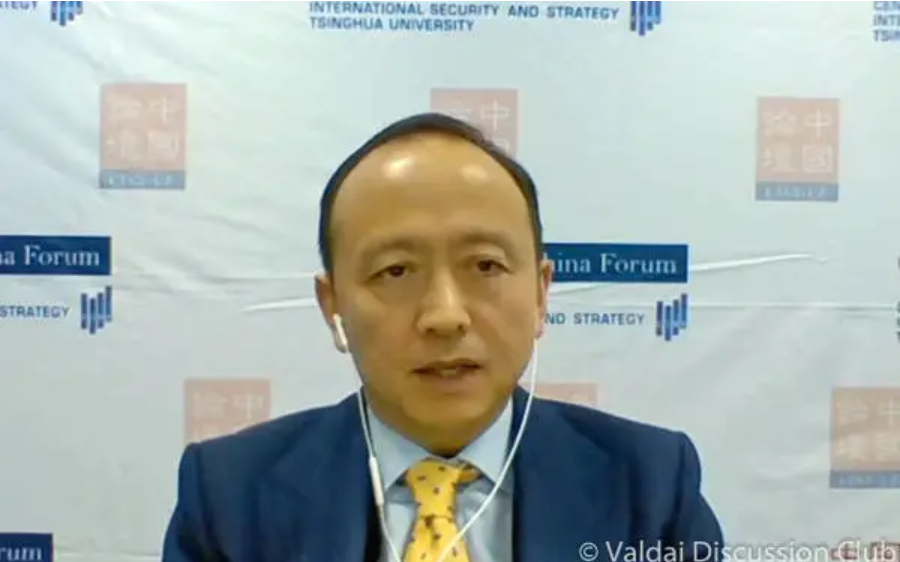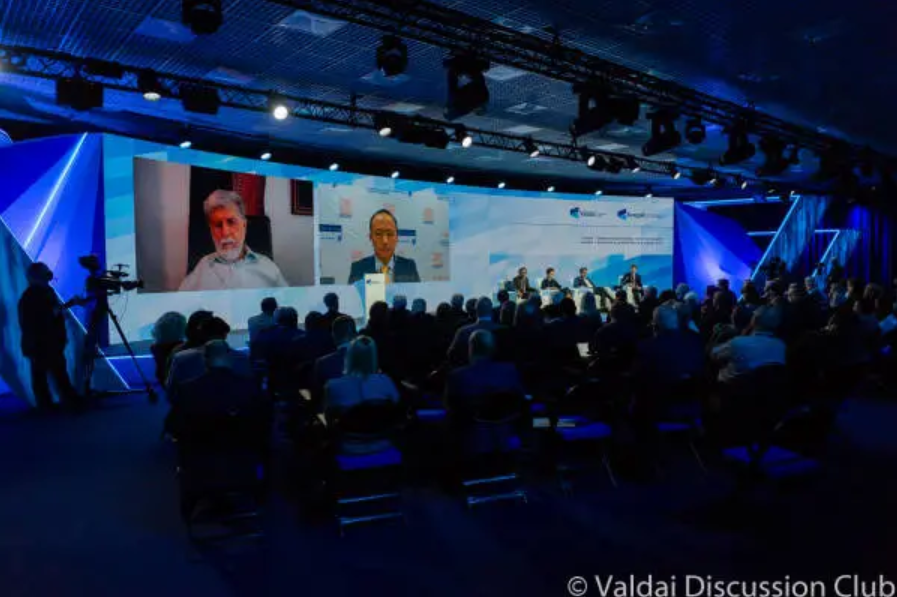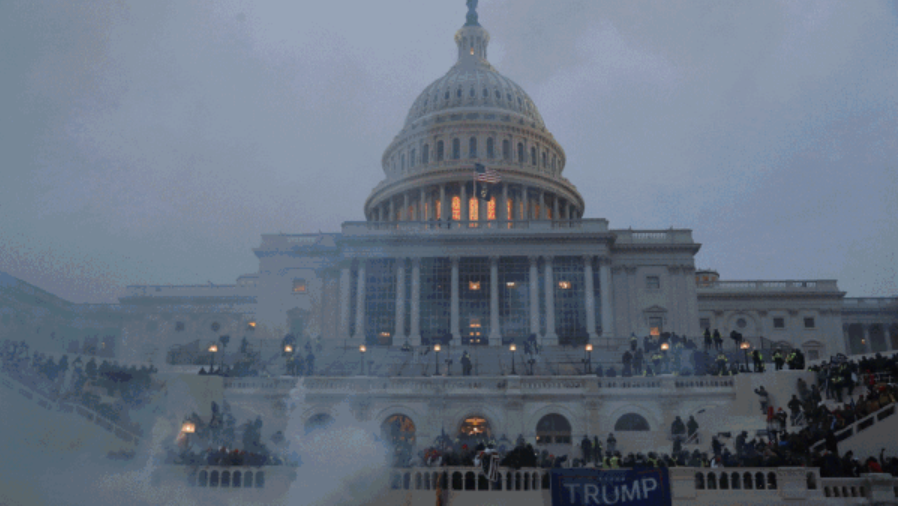Zhou Bo:Senior Colonel Zhou Bo(ret) is a senior Fellow, Center for International Security and Strategy Tsinghua University and China Forum expert
Zhou Bo:
Thanks Mr Chairman for providing me a chance to talk at this important club. The fact that I am talking from Beijing at a conference in Sochi, Russia tells how Covid-19 has changed the world. But we shouldn’t be surprised. Throughout history, infectious disease has killed more human beings than natural disasters or wars. The plague of Justinian (541–549 AD), the first major outbreak of the first plague pandemic wiped out half the global population at the time. During World War I, some 50 to 100 million people died in the 1918 influenza pandemic – numbers that surpass the death toll of the war that was being fought at the same time. Thanks to unprecedented speedy response and large-scale investment in the vaccine, the number of fatalities caused by COVID-19 has slowed down.

Pathogens know no borders. No matter how Covid should have united people around the world to fight against it, it hasn’t. Instead, it sowed disaccord, highlighted inequality and exacerbated social divisions. In the international arena, it adds fuel to the great power competition in which the United States takes China and Russia as the primary strategic competitors. Now America’s competition with China has become “extreme competition”, according to Joe Biden.
I cannot speak on behalf of Russians, but I guess the reason behind China being taken by the US as primary competitor is because, according to former Vice President Michael Pence, “After the fall of the Soviet Union, we assumed that a free China was inevitable”. But China hasn’t become a liberal democracy. Worse still for Washington, China is getting stronger and stronger.
The thing is China has never intended to become “a free China” as Pence and his likes wish. China always maintains that it is a socialist country led by the Chinese communist party. When the US brands China as “primary competitor”, it confirms what China has long believed that all the sweet talks of the US in the past about how it wished China would be strong and prosperous are but fat lies.
And why should China become a liberal democracy like the US? According to Freedom House, a watchdog of democracy around the world, democracy around the globe has been declining since 2006, even in established democracies such as the US and India. I am pretty sure that liberal democray will continue to decline in the years ahead. When an “authoritarian state” such as China overtakes the US to become the world’s largest economy in terms of gross domestic product in around 2030, the influence of Western democracy will be looking at its nadir. This doesn’t mean China wishes to export its model of governance and development, but it helps people to come to terms with common sense -- the world, now as in the past, is always a coexistence of different civilizations, social systems, cultures and religions. There is no such myth of democracy vs autocracy.

The self-aggrandizement of the west for liberal democracy is historical myopia. Although liberal democracy traces its origins to the Age of Enlightenment, it only spread after the Industrial Revolution and the introduction of capitalism. So far the concept of western liberal democracy is less than three hundred years old, which is a shorter time span than the lengths of either the Han, Tang, Song, Ming, and Qing Dynasties of China or Russia’s Romanov Dynasty. According to Freedom House, “fewer than a fifth of the world’s people now live in fully Free countries”. In other words, the world is never western. With full respect for the word “democracy”, I wish to point out that no consensus exists on a precise definition of democracy. The late UN secretary general Kofi Annan said that "there are as many different forms of democracy as there are democratic nations in the world." Mali is ranked as "Free" by Freedom House, but is a Least Developed Country. Qatar has arguably the highest GDP per capita in the world, but has never been democratic. Which of the two countries has delivered more to its own people? And if a country fails to meet the basic needs of its own people, is such democracy still desirable?
Two years ago, the UN secretary general Antonio Guterres talked about “our 1945 moment” in which he saw the risk of “a great fracture” of the world splitting in two, with the two largest economies on earth creating two separate and competing worlds, each with their own dominant currency, trade and financial rules, their own internet and artificial intelligence capacities. In September, he further described the relationship between China and the United States as “completely dysfunctional” and warned against a new cold war “that would be different from the past one, and probably more dangerous and more difficult to manage”.
I see a few more fractures. First, the West is splintering. The 2020 Munich security conference report is titled in one word “Westlessness”. It concluded that not only was the world becoming less Western, the West itself was becoming less Western, too. Wolfgang Ischinger, Chairman of the Munich Security Conference pointed out that “a liberal-democratic set of norms that were once taken for granted… turned out to be more fragile than most could have imagined”. Worse still, the west is threatened from inside with the rise of illiberalism and the return of nationalism.

Secondly, the US as the leader of the “free world” appears more divided than ever over social issues, race, gender and the economy. America’s General Social Survey in 2020 shows that Americans are the unhappiest they have been in 50 years. The fact that the Capitol Hill, the supreme seat of American democracy, was taken over by the insurrectionists incited by an outgoing American president tells how deeply Americans are polarized today. CNN said Trump has left America at its most divided since the Civil War.
Finally, I believe America-led alliance will continue to decay in spite of Biden’s vow to strengthen it. In Europe, short of an apparent enemy, NATO has long lost its momentum to the extent that French President Macron called it “braindead”. The ending of Afghan wars marks the ending of America’s global war on terrorism and the beginning of Biden’s extreme competition with China in the Indo-Pacific. As a result, the US will not be back as Biden promised, it will reduce, however gradually, its attention on and support of Europe. This will of course weaken NATO and will in turn cause Europe to strengthen its “strategic autonomy” which has so far remains very much of a slogan.
In Asia, the strength of America’s alliance cannot be taken for granted either. Most countries including America’s allies and partners in the Asia-Pacific are worried about choosing sides between the US and China, their largest trading partners. The recent AUKUS agreement between the US, Britain and Australia shows how the US could resort to desperate measures in its competition against China, even at the cost of an important ally. But if the US has succeeded in turning a once half-hearted Australia against China, the “stab in the back” of France, as French Foreign Affairs Minister Jean-Yves Le Drian described, will have long term impact.
Now let me come to the question raised by the organizer of the conference. Is this “Substitute for a World War or a Prelude to It”? I don’t think we are sliding into a world war or even prelude of it, but there is indeed danger of conflict between Beijing and Washington in the Taiwan Strait and the South China Sea.
Biden said that US rivalry with China will take the form of “extreme competition” rather than conflict. I’d love to f believe in him, because neither China nor the US wants a conflict, let alone a war. But the problem is: if we are in extreme competition, are we far away from conflict? There were already quite a few accidents including a deadly collision of military aircraft in 2001 and dangerous encounters by naval ships at sea. All the accidents so far occurred in China’s, not America’s, periphery. Naturally enough, the US is the trouble maker.
If the 20-year war in Afghanistan is a “forever war” for the United States, then its competition with China must be “forever competition”, because it will surely last longer than twenty years. In the years ahead, China-US competition will most certainly intensify in that the US will take it as the last chance to bring down a rising power, but there is no guarantee it will succeed. China’s rise is from within the current international system that was to a great extent established by the west led by the US. Today China is so integrated with the system that it vows to be a guardian of the existing international order. Therefore, America’s efforts to bash China will bring damage to the international system and hurt the US itself.
Although the US militarily is still much stronger than the PLA, the gap in the Western Pacific is closing in China’s favor. Thanks to the progress made in the last four decades, the PLA has all the advantages of being on home turf in a conflict. As the New York times has observed, “it is far more difficult for the United STATES and its allies to project power thousands of miles to Taiwan than it is for China to project power 100 miles across the Taiwan Strait”, “neither AUKUS submarines nor US bombers flying from northern Australia are likely to tip the balance”.
China believes “the world is undergoing great changes that have not been seen in a century”, but it is confident about the future. In the 21st century, no change is greater than the rise of China. The global power is shifting irreversibly from the west to the east with China playing a central role in this process. Although it is not entirely up to Beijing to choose between peace and war, China today is certainly in a better position to shape her environment and avert wars.
